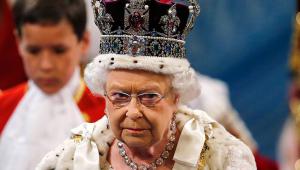Details of a new Digital Services Tax, published yesterday, reveals that the Treasury expects to raise more than £1.2bn from the new tax between April 2020, when it is due to come into force, and 2022-23.
The tax will impose a 2% tax on revenues of search engines, social media platforms and online marketplaces “which derive value from UK users” and will raise some £440m a year by 2022-23, according to a new policy paper.
It is expected to have an impact on a small number of large multinational groups by taxing the proportion of their revenue that is derived from UK users of social media, search engines or online marketplaces.
The tax will apply to companies with annual global revenues of more than £500m, of which more than £25m are derived from UK users.
The tax, first outlined in the last autumn Budget, will collect £370m in 2020-21, £400m in 2021-22 and £440m in 2022-23.
Legislation to enable the new tax to come into force will be included in the Finance Bill 2019-20 due to be presented to Parliament later this year.
The new tax is needed to tackle the current “misalignment between the place where profits are taxed and the place where value is created.”
It will “ensure large multinational businesses make a fair contribution to supporting vital public services.”
However, the “most sustainable long-term solution to the tax challenges arising from digitalisation is reform of the international corporate tax rules” according to the government.
It “strongly supports G7, G20 and OECD discussions on the different proposals for reform” and “is committed to dis-applying the Digital Services Tax once an appropriate international solution is in place.”
This comes after a similar move from the French government yesterday which prompted an investigation from the US government which could lead to retaliatory trade tariffs.
Richard Asquith, vice president of indirect tax at Avalara tax consultancy, told PF: “The UK unilateral digital tax proposals, like those of France and Spain, are more aimed at putting pressure for a global solution. There is progress on this by the OECD, and we can expect draft proposals next year. So it is unlikely that the UK plans will actually be implemented.”
He added: “However, in the meantime, this is not going to sooth escalating tariff wars with the US and it won’t be positive for the UK’s aim of getting a quick free trade agreement with the US post Brexit.”
Jesse Norman, financial secretary to the Treasury and paymaster general, said the UK has “always sought to lead in finding an international solution to taxing the digital economy”.
She remarked: “This targeted and proportionate Digital Services Tax is designed to keep our tax system in this area both fair and competitive, pending a longer term international settlement.”
But a technology industry leader has claims the new tax is unlikely to be beneficial for the UK economy or consumers.
Giles Derrington, association director for policy at trade body techUK, said: “There is no doubt that the system for international taxation needs to evolve to deal with a digitising economy. To do that we need smart and innovative solutions developed at a global level.”
He added: “As a revenue tax targeted on a narrowly defined set of companies, the DST is not one of those smart measures. It risks making investing in the UK less attractive, increasing costs for consumers and will likely hinder progress towards a long term global solution.”
And Glyn Fullelove, president of the Chartered Institute of Taxation, warned that the tax might not be as effective as some expect.
“The amounts expected to be raised from DST will not materially affect the country’s finances and a sense of perspective thus needs to be kept. The government must manage expectations and the public perception of the taxation of the largest digital businesses, the impact of the DST and what it is intended to achieve and what it can achieve,” he said.
Google and Twitter have been approached for comment. Facebook declined to comment.











